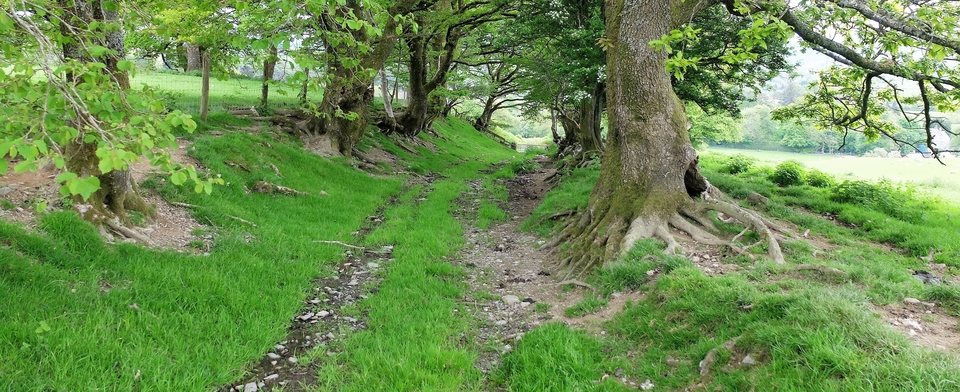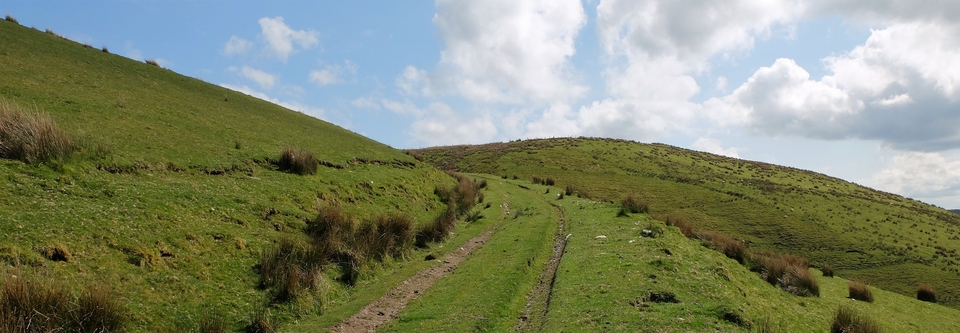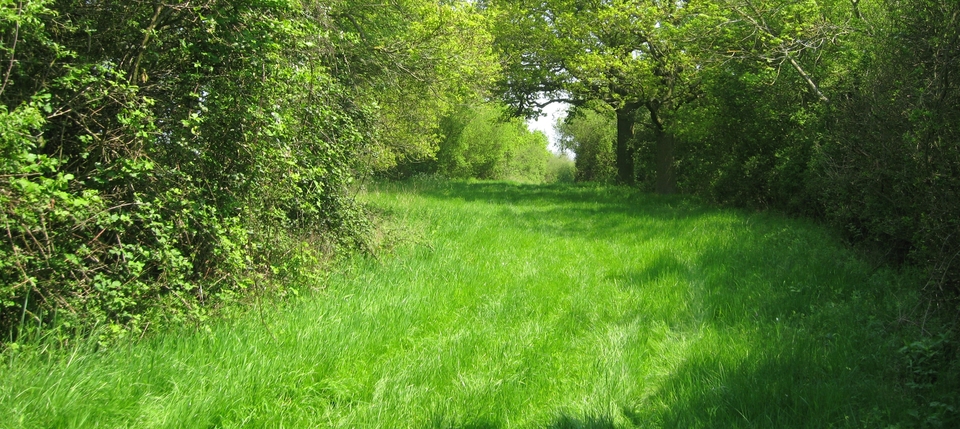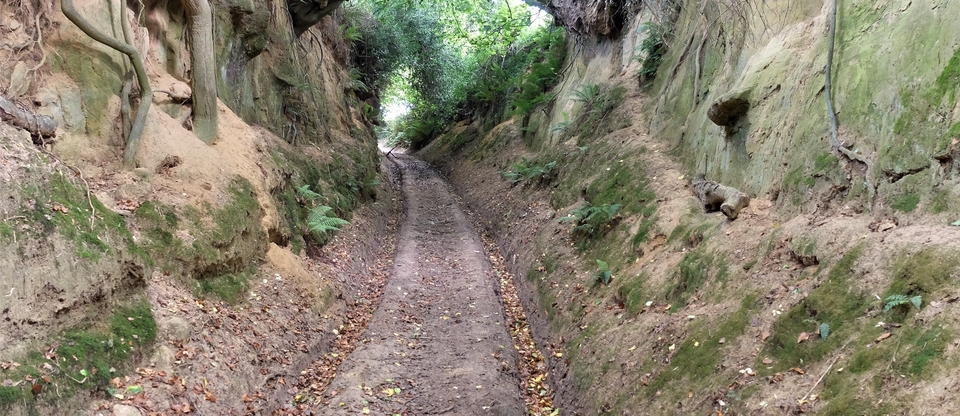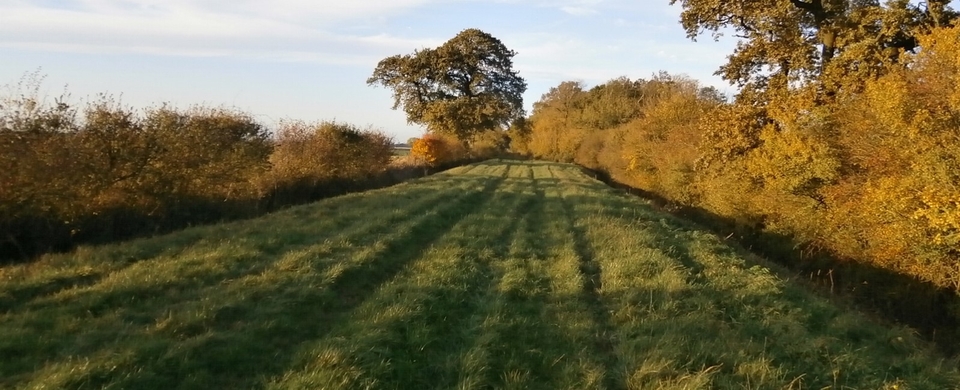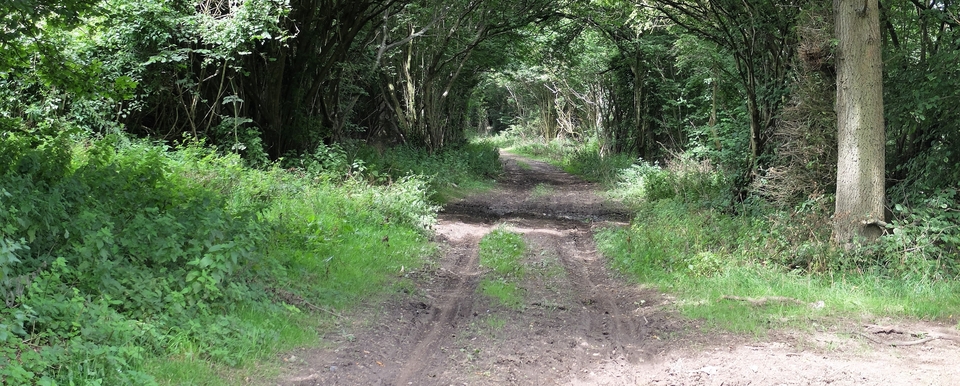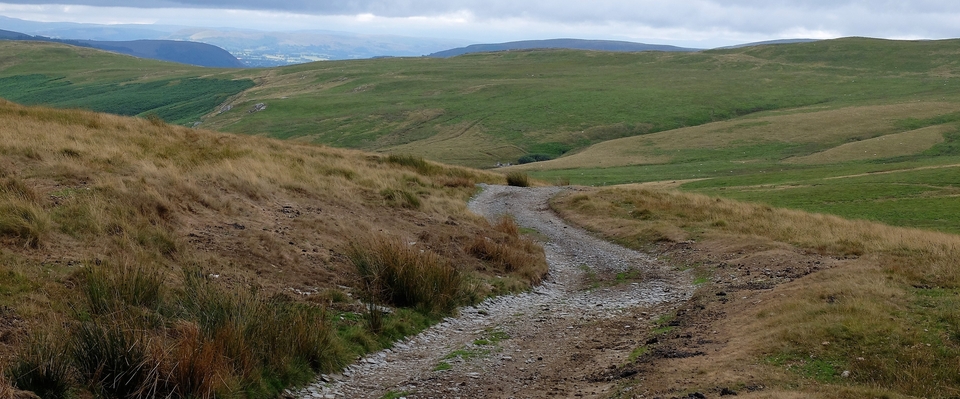Westbury to The Blue Boys
Cattle not ready for the Gloucester markets were often fattened – as they still are today – on the meadows that line the right bank of the Severn between Newnham and Gloucester.
The grassy seawall that protects these pastures from floodwater provides a good walk. It is best reached from Westbury-on-Severn, otherwise you're on busy tarmac: walk south from Westbury Church, take a left turn at SO 715133 up Garden Cliff, clamber over a few stiles and there are 22 winding miles of riverbank in front of you, all the way to Over Bridge…
The Blue Boys Inn (now Farm) at 745109 was as far as we got. It's a scenic route but a bit reminiscent of East Anglia, where you can walk for miles and see the same spire/house on the horizon that never seems to get any nearer. However, we want to complete the journey one day, perhaps at the right time of the month for the Severn Bore.
The pastures on our left as we walked upstream were large enough, but Shirley Toulson says that beyond Minsterworth (best Bore viewpoint, apparently) the 400 acres of Corn Ham put the fields we saw into perspective.
The Blue Boys (first recorded 1774) was, of course, a drovers' inn designed to rest or entice those who were making the crossing to Framilode1 by ferry. Or, if daring enough, on foot. But the name…? The sole explanation I have found: the postillion, who rode the leading nearside horse in a team pulling a carriage, used to wear a distinctive blue coat. However, the BB is nearly two miles south of the Gloucester-South Wales turnpike: over-optimism in business is nothing new, obviously.
Note: all crossings of the Severn were dangerous, as is shown by this extract from The Gloucester Journal, 11th May 1812:
Melancholy Accident: On Thursday last, as the ferry was crossing the River Severn at Framilode-Passage, deeply laden with cattle coming from Ross fair, she unfortunately shipped some water, filled, and sank about half-way over, at the depth of ten feet. The cattle swam for different parts of the shore. The drover who had them in charge, and two boatmen, were the only persons on board: one of the latter supported himself upon a plank, the other mounted one of the horses, but, being a stout, powerful man, the animal sunk under him…he sustained himself by swimming till boats from the shore picked him and his companion up. But their unhappy passenger [the drover] perished…2
1 The -lode at the end of the word is local for "crossing". Cf. Upper & Lower Lodes, Tewkesbury.
2 My thanks to Nicholas Herbert's informative book "Road Travel & Transport in Gloucestershire" (County Library Series) for this extract.
